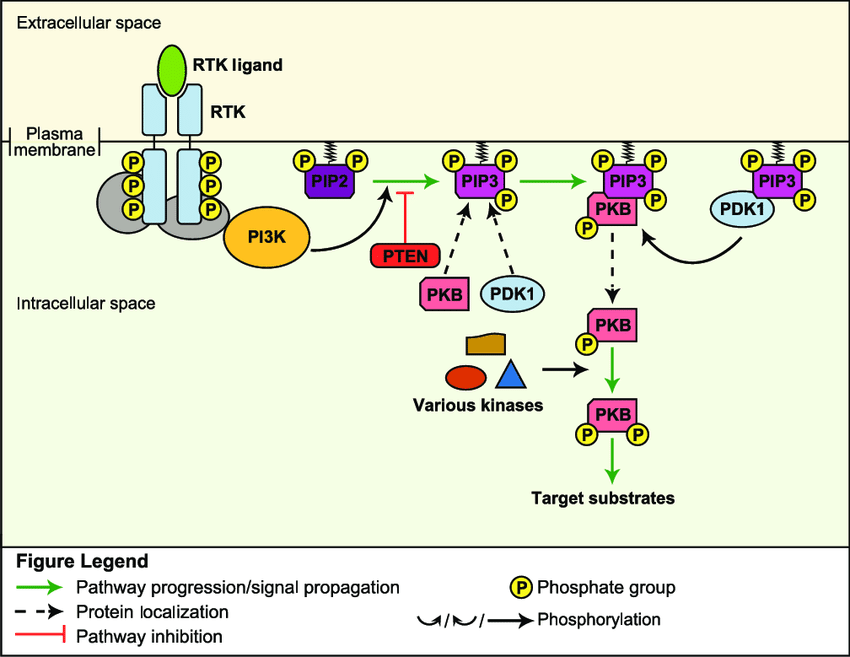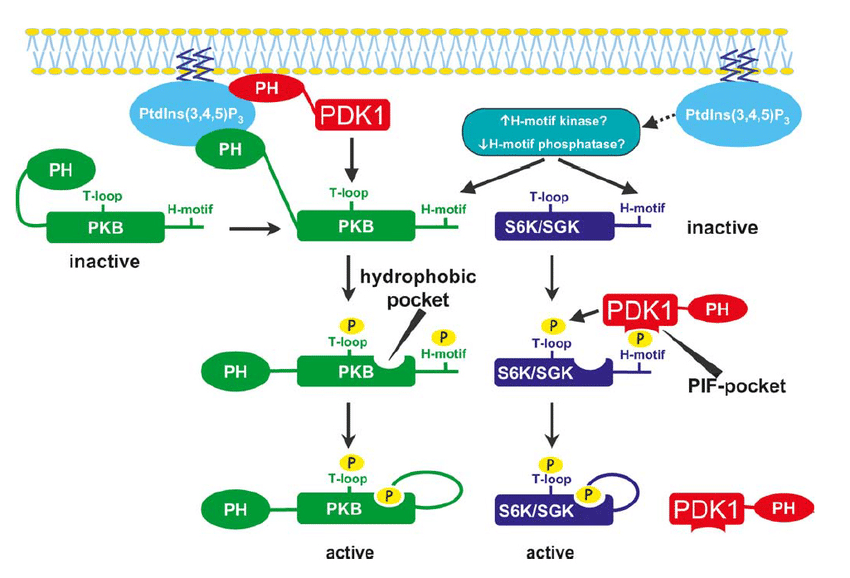PI3K
2022-03-03: reference:
PI3K (Phosphoinositide 3-kinase(s)) #
-
Physiologically, it’s a p110 catalytic subunit and p85 regulatory subunit (aka PIK3R1).

-
PI3K phosphorylates PIP2 to PIP3, which can get reversed via PTEN into PIP2+Pi again. Or, one can just consider PTEN as an inhibitor of PI3K’s process.
- Requires RTK or a GPCR (which ones? No source) to activate it
-
Phosphatidylinositol is converted to PIP (PI4P (WHY must we use letters to denote the position man? It’s confusing enough)) via PI4K. Literally.
-
Then it turns to PIP2 via PI5K, then I guess we just go back around town to:
-

- S/T-Ks (PKB, PDK, non-receptor Trks, IRS, and some others have a PH (Pleckstrin homology) domain which binds to PIP3 (sometimes PIP2 for certain proteins, or maybe situations). Since PIP3 embeds itself in the membrane, the proteins localize to them.
- PIP3 doesn’t actually supply phosphate groups though - it actually positions PKB for phosphorylation by an adjacent PDK1, which also is bound to membrane PIP3. Akt then dissociates and does numerous things afterwards.
- Then I guess the question is what difference does it make if it’s PIP2 or PIP3 the PH domains bind to? What does it change?
- S/T-Ks (PKB, PDK, non-receptor Trks, IRS, and some others have a PH (Pleckstrin homology) domain which binds to PIP3 (sometimes PIP2 for certain proteins, or maybe situations). Since PIP3 embeds itself in the membrane, the proteins localize to them.